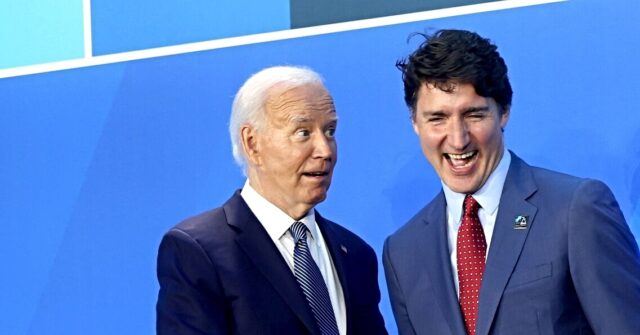The tensions between Canada and India have escalated significantly following allegations by Canada against the Indian government regarding the assassination of Hardeep Singh Nijjar, a Sikh separatist leader. The Biden administration has weighed in on the matter, urging India to take these allegations seriously and to cooperate with Canadian investigations. This statement by the State Department reflects a growing concern over potential state-sponsored acts of violence. The diplomatic rift has already led to both countries expelling six diplomats from each other’s embassies, illustrating the severity of the situation. State Department spokesman Matthew Miller emphasized the seriousness of the claims, suggesting India should engage constructively with Canada in light of the allegations.
Nijjar was a significant figure in the Khalistan movement, which seeks to establish a separate Sikh homeland from parts of India. This movement is viewed by the Indian government as a severe security threat, connected to organized crime and terrorism. India has expressed frustration over Canada allegedly providing a refuge for Sikh separatists, while Canadian Prime Minister Justin Trudeau contends that Nijjar’s murder is indicative of a broader pattern of India’s international interference. Nijjar was designated as a terrorist by the Indian government in 2020, a designation which complicates the dynamics between the two nations significantly. The murder, occurring outside a temple in Vancouver in September 2023, has led Canada to assert that the Indian state may have had a role in the targeting of Nijjar.
In the wake of these grave allegations, the Indian government has asserted that these claims are baseless and have been made without sufficient evidence. Furthermore, an Indian national currently faces charges in the U.S. for plotting to kill another Sikh separatist leader in New York City, which has added another layer of diplomatic complexity. The fact that an Indian enquiry committee visited Washington, D.C., shows that India is keen to engage with the U.S. regarding this ongoing investigation, portraying a desire on their part to address issues directly rather than escalating them further. On the other hand, the response from the U.S. has been measured and calls for cooperation between Canada and India rather than public accusations, demonstrating a more cautious diplomatic approach.
Commentators like Michael Rubin from the American Enterprise Institute have suggested that Canadian Prime Minister Trudeau may be overstating the evidence implicating India in the assassination, stating that Trudeau’s claims might be politically motivated. Rubin has posited that the reality of the situation resembles more of a criminal act than a properly sanctioned operation by a state. This opinion reflects a growing sentiment among some analysts that Trudeau could be conflating legitimate Sikh political aspirations with violent realities tied to a minority faction within the Khalistani movement, which could hinder constructive dialogue. Critics of Trudeau also argue that he could be leveraging these tensions to solidify his political standing domestically, despite the associated risks to Canadian diplomatics.
The Indian media has contributed to the dialogue by suggesting a nuanced perspective on the support being extended by the Biden administration to Canada, framing the U.S. as more restrained compared to Canada. Reports from NDTV have emphasized that the U.S. is focusing on highlighting the necessity for bilateral cooperation rather than engaging in accusatory rhetoric. This approach could set the stage for diplomatic channels to remain open, suggesting that both nations may benefit from a more composed and deliberate resolution to their current predicament. Diplomatic negotiations, particularly related to sensitive issues like national security and sovereignty, often require a balance between assertiveness and discretion to foster an environment conducive to dialogue.
Additionally, the political ramifications of this diplomatic spat extend into Canadian domestic politics, with members of Trudeau’s Liberal Party beginning to publicly voice concerns about his leadership amid deteriorating relations with India. Sean Casey’s recent call for Trudeau’s resignation underscores the internal pressures he faces. As the backlash against his administration grows, especially in the context of escalating tensions with a significant global partner like India, Trudeau’s government may experience increased scrutiny from both within and outside the party. The current diplomatic crisis not only poses challenges for Canadian foreign policy but also invites questions about the political future of its leadership amidst rising anti-incumbency sentiment. In summary, the unfolding situation presents a complicated interplay of international relations, domestic politics, and security concerns, which both nations will need to navigate carefully to avoid further deterioration of their ties.

